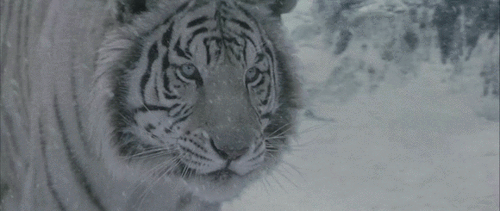nixie summers . d4 . resub . fin
Jan 1, 2022 11:06:53 GMT -5
Post by kap on Jan 1, 2022 11:06:53 GMT -5
tw: depression
As a child, I was taught that damaging others' property gets you nowhere. My mother taught me that when I snipped all of Marina's hair ties with a pair of scissors while she wasn't home. Apparently, that little lesson was correct. Whiskey Finch may have ignited the room around us, destroying everything in sight as we fought, but he wasn't the won who won. Rather, it was me.
Of course, I was far from innocent. Victors are never innocent. We all had to kill to get to where we are now. I killed five people to be where I am now: alive. Luya Feng was the first. I remember the thrill I felt when I killed her. Clearly, feeling a thrill when you kill someone is a sign that you've likely got something wrong with you. I've always known there was something wrong with me, though.
Growing up, I didn't feel quite like I belonged in my family. At least, not until a few years before I went into the Hunger Games. From the time I was really little until the time my older sister aged out of the reaping, I felt like all of the positive focus was on her, and the negative focus was on me. It wasn't like my parents saw her as perfect, but I was definitely seen as imperfect.
I was the problem child: the troublemaker. My parents had to practically bribe me to behave when I was younger. I was always messing with people, whether it be pulling pranks or playing to their gullible side. To get me to behave, our family adopted our first dog, Emma. She was the cutest, most precious little thing, and I would do everything in my power to make sure that dog was happy. Eventually, though, she passed away when I was fifteen, and everything started to go downhill again.
I sank into a depression, worse than anything I'd ever felt. I didn't know how to function anymore. I didn't want to function anymore. I just wanted to give up, but I knew I couldn't. Even if I wasn't the child I felt like my parents wanted, I still knew they loved me, even if it wasn't always obvious.
Eventually, as a form of emotional support for me, my parents adopted our current dog, Pixie. We decided to give her a name close to my own since she was meant to be my support animal. When I won the Games and moved into Victor's Village, I couldn't convince them to let me take Pixie, though. Even though she was meant to be my form of support, for some reason, my parents thought it was okay to keep her away from me. I'm still hoping I can find a way to convince them to let me have her with me.
I suppose the one thing I kept from the Games that has helped me since is my little, pocket-sized triceratops friend named Emmy. I named her similarly to my old dog Emma, as a little tribute to her. She helps a bit in the way of emotional support, so perhaps that's why my parents don't think I need Pixie.
As I said, Emmy is the one thing I kept from the Games that has helped me. I suppose there are other things I've kept from the Games, too, though. They're just not physical things. Trauma. Anger. Friendship. Maybe even a few laughs. Most of all, memories. The memories from the Games aren't going away anytime soon, whether they be the good ones, like the times I got to cheer up Tsara, or the more traumatic ones, like having to kill Whiskey.
No amount of career training that I did before the Games could change the fact that there was going to be trauma involved. Losing my friends that I made in that arena would never not be traumatizing. I had to see Tsara die. I had to kill Whiskey. The others? I had to see their faces in the sky and later killed their killers. The thing is, I wasn't traumatized from the killing that I did. If anything, I felt like it changed me for the better. It wasn't something I felt sorry about. Although, I do feel that that means that there is something very, very wrong with me.
I have a feeling that my family also thinks there's something very wrong with me. Marina's been very distant since I won. My father's barely home anyway, so I have no idea what he thinks. My mother seems proud of me, but at the same time she seems disappointed in my lack of remorse for what I did to get back home.
I was trained as a career. I wasn't trained to feel remorse or show mercy to my opponents: my enemies. I was supposed to attack, fight and kill with no regrets. Careers weren't supposed to show weakness, and that's what I was conditioned to.
I wasn't heartless, I was just trained in a way that made me harder to break.
As a child, I was taught that damaging others' property gets you nowhere. My mother taught me that when I snipped all of Marina's hair ties with a pair of scissors while she wasn't home. Apparently, that little lesson was correct. Whiskey Finch may have ignited the room around us, destroying everything in sight as we fought, but he wasn't the won who won. Rather, it was me.
Of course, I was far from innocent. Victors are never innocent. We all had to kill to get to where we are now. I killed five people to be where I am now: alive. Luya Feng was the first. I remember the thrill I felt when I killed her. Clearly, feeling a thrill when you kill someone is a sign that you've likely got something wrong with you. I've always known there was something wrong with me, though.
Growing up, I didn't feel quite like I belonged in my family. At least, not until a few years before I went into the Hunger Games. From the time I was really little until the time my older sister aged out of the reaping, I felt like all of the positive focus was on her, and the negative focus was on me. It wasn't like my parents saw her as perfect, but I was definitely seen as imperfect.
I was the problem child: the troublemaker. My parents had to practically bribe me to behave when I was younger. I was always messing with people, whether it be pulling pranks or playing to their gullible side. To get me to behave, our family adopted our first dog, Emma. She was the cutest, most precious little thing, and I would do everything in my power to make sure that dog was happy. Eventually, though, she passed away when I was fifteen, and everything started to go downhill again.
I sank into a depression, worse than anything I'd ever felt. I didn't know how to function anymore. I didn't want to function anymore. I just wanted to give up, but I knew I couldn't. Even if I wasn't the child I felt like my parents wanted, I still knew they loved me, even if it wasn't always obvious.
Eventually, as a form of emotional support for me, my parents adopted our current dog, Pixie. We decided to give her a name close to my own since she was meant to be my support animal. When I won the Games and moved into Victor's Village, I couldn't convince them to let me take Pixie, though. Even though she was meant to be my form of support, for some reason, my parents thought it was okay to keep her away from me. I'm still hoping I can find a way to convince them to let me have her with me.
I suppose the one thing I kept from the Games that has helped me since is my little, pocket-sized triceratops friend named Emmy. I named her similarly to my old dog Emma, as a little tribute to her. She helps a bit in the way of emotional support, so perhaps that's why my parents don't think I need Pixie.
As I said, Emmy is the one thing I kept from the Games that has helped me. I suppose there are other things I've kept from the Games, too, though. They're just not physical things. Trauma. Anger. Friendship. Maybe even a few laughs. Most of all, memories. The memories from the Games aren't going away anytime soon, whether they be the good ones, like the times I got to cheer up Tsara, or the more traumatic ones, like having to kill Whiskey.
No amount of career training that I did before the Games could change the fact that there was going to be trauma involved. Losing my friends that I made in that arena would never not be traumatizing. I had to see Tsara die. I had to kill Whiskey. The others? I had to see their faces in the sky and later killed their killers. The thing is, I wasn't traumatized from the killing that I did. If anything, I felt like it changed me for the better. It wasn't something I felt sorry about. Although, I do feel that that means that there is something very, very wrong with me.
I have a feeling that my family also thinks there's something very wrong with me. Marina's been very distant since I won. My father's barely home anyway, so I have no idea what he thinks. My mother seems proud of me, but at the same time she seems disappointed in my lack of remorse for what I did to get back home.
I was trained as a career. I wasn't trained to feel remorse or show mercy to my opponents: my enemies. I was supposed to attack, fight and kill with no regrets. Careers weren't supposed to show weakness, and that's what I was conditioned to.
I wasn't heartless, I was just trained in a way that made me harder to break.
{ table by rose }
































































